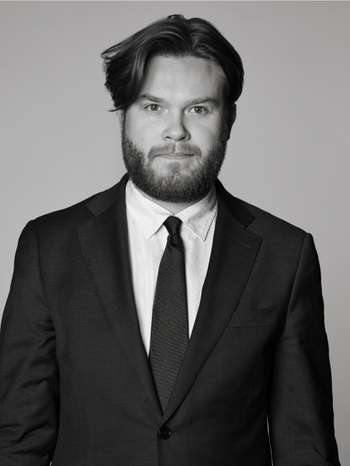Konstantin Fedorovic Yuon
River scene
Signed K Yuon in Cyrillic script. Oil on canvas 69 x 142
Saleroom notice
Title changes to River scene
Provenance
Elsa née von Wogau and Hugo Marc (1869 – 1918), the trading house Wogau & Co, Moscow, Russia. In 1918, Elsa von Wogau moved to Sweden.
Thence by descent in the family.
More information
Konstantin Fedorovic Yuon was born in Moscow in a family of Swiss-Russian origin. From 1892 to 1898 he studied at the Moscow School of Painting, Sculpture and Architecture where Konstantin Savitsky and Konstantin Korovin were among his teachers. After graduating, he took private lessons from the artist Valentin Serov. During several trips to Western Europe, particularly to Paris, he came in contact with the work of Camille Pissarro and other Impressionists but retained his own distinctive style. Before the revolution, the focus of Yuon’s creative work was on landscapes of Russia, cities with churches, women in folk costumes, and traditional Russian life. He found inspiration in the provincial towns with their magnificent monasteries and churches.
The landscape painting offered in this auction depicts a view of a turn in the river Volga with a village visible on the opposite bank. The artist has captured the impression of the serene scenery without fixing on a certain point. The lush vegetation in the foreground is depicted with short brushstrokes in all directions. The pointillistic dabs of paint in pure colours form a complex and lively mesh of greenery. Beyond, sailing vessels pass, floating down the river as the small village rises on the opposite bank. The cluster of buildings are painted with broad strokes of paint with the monastery cupolas standing out against the pale blue sky. The diagonal formed by the river in the composition is reinforced by the walking track on the left leading into the distance. In 1911 Yuon made a trip to the picturesque town of Uglich, one of the oldest cities on the riverbanks of the Volga and it is possible that this painting was created during this trip. Yuon showed six works painted in Uglich at the Union of Russian Artists’ exhibition in Moscow and St Petersburg in 1913-14 and the painting was acquired by the family of Hugo Marc and Elsa von Wogau in Moscow around this time.
The Wogau family business in Russia started with a trading company founded by Philipp Maximilian von Wogau (1807 – 1880). Using profits from the tea trade, the company started buying and selling cotton. By the beginning of the World War I, the Wogau company had built and controlled one of the most extensive trading and industrial conglomerates in the Russian Empire. Elsa von Wogau b. 1876 in Moscow was the granddaughter of the founder of the company. She married Hugo Marc (1869 – 1918) who then became part owner of the trading house. When Germany declared war on Russia, the positions of German-owned enterprises were threatened. Although Wogau & Co. formally operated until 1918, most operations had been ceased by 1916. By the time of the revolution many members of the founding families had left the country. Elsa von Wogau moved from Russia to Sweden together with one of her sons 1918. Hugo Marc died in Moscow in 1918.


















































